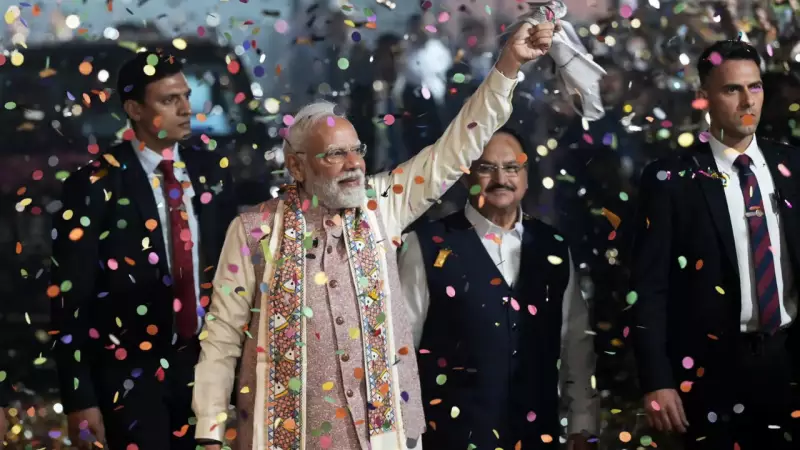
In a stunning political transformation, the Bharatiya Janata Party has emerged as the single largest party in Bihar, securing 89 seats in the state assembly elections. This represents the party's highest-ever tally in the state and marks a fundamental shift in Bihar's political landscape that has been dominated by socialist forces for decades.
From Outsider to Power Center
The BJP's remarkable performance exceeded even Home Minister Amit Shah's pre-poll prediction of winning 160-180 seats, with the NDA alliance finishing at an impressive 202 seats. For years, Bihar politics revolved around the Lalu Prasad Yadav-Nitish Kumar axis, with the BJP lacking organic roots in a state where caste loyalties traditionally trumped ideology.
The party employed patience and strategic groundwork, allowing Nitish Kumar to remain the public face of governance while quietly building its organizational strength. Through extensive booth network development, OBC outreach, and systematic weakening of RJD's voter base, the BJP steadily infused its ideological presence into Bihar's personality-driven politics.
The Social Engineering Masterstroke
Under Prime Minister Narendra Modi's leadership, the BJP's social engineering strategy yielded surprising results even in Muslim-dominated regions like Seemanchal, where voters showed willingness to support the NDA alliance. This represents a significant departure from traditional voting patterns that typically placed Muslim voters outside the BJP's fold.
The real turning point came in the 2020 elections when the BJP outscored its senior ally JD(U) for the first time, winning 74 seats compared to JD(U)'s 43. Despite this performance, the party continued supporting Nitish Kumar as chief minister, demonstrating strategic patience over immediate gains.
End of the Dependency Era
This election made the power shift official. During seat negotiations, the BJP secured 101 seats, matching JD(U)'s allocation, establishing itself as an equal partner and ending the long-standing narrative of JD(U) as the "big brother" in the alliance.
While Nitish Kumar staged an impressive comeback, increasing his party's tally from 43 to 85 seats, his indispensability has diminished. The BJP with its partners - LJP (RV)'s 19 seats, HAM's 5, and RLM's 4 - totals 117 seats, just short of the majority mark. The remaining gap could potentially be bridged through negotiations with nine independent candidates.
The question of chief ministership remains open, with Amit Shah stating that NDA partners would collectively decide. Nitish Kumar's history of political shifts - from BJP to RJD and back multiple times - has earned him the reputation of practicing "weatherproof politics," making complete trust a challenging proposition.
This transformation represents one of the most significant political realignments in recent history. From the days when Lalu Prasad Yadav arrested LK Advani during his Ram Mandir Rath Yatra, to becoming the strongest force in Bihar's ruling coalition, the BJP has completed a remarkable journey from political outsider to the state's center of gravity.






